Filter by
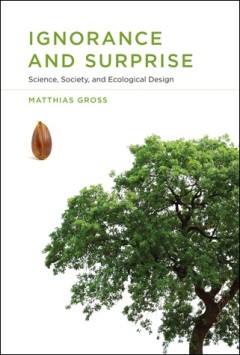
Ignorance and Surprise: Science, Society, and Ecological Design
In this work, Matthias Gross examines the relationship between ignorance and surprise, proposing a conceptual framework for handling the unexpected and offering case studies of ecological design that demonstrate the advantages of allowing for surprises and including ignorance in the design and negotiation processes.OCLC-licensed vendor bibliographic record.
- Edition
- -
- ISBN/ISSN
- 9780262265911
- Collation
- 1 online resource (xii, 240 pages) :illustrations, maps.
- Series Title
- -
- Call Number
- -
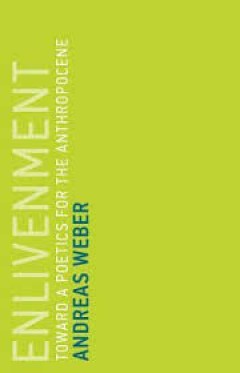
Enlivenment :toward a poetics for the Anthropocene
A new understanding of the Anthropocene that is based on mutual transformation with nature rather than control over nature. We have been told that we are living in the Anthropocene, a geological era shaped by humans rather than by nature. In Enlivenment , German philosopher Andreas Weber presents an alternative understanding of our relationship with nature, arguing not that humans control natur…
- Edition
- -
- ISBN/ISSN
- 9780262352277
- Collation
- 1 online resource (208 pages).
- Series Title
- -
- Call Number
- -
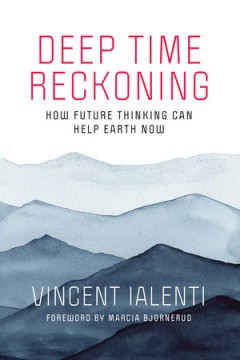
Deep time reckoning :how future thinking can help earth now
"How Finland's nuclear waste experts discern far future Earths, and what the rest of us non-Finns and non-experts can learn from them"--OCLC-licensed vendor bibliographic record.
- Edition
- -
- ISBN/ISSN
- 9780262359368
- Collation
- 1 online resource.
- Series Title
- -
- Call Number
- -
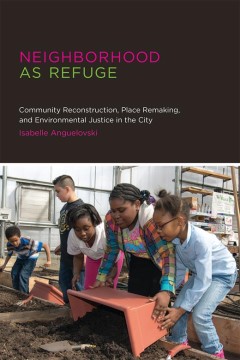
Neighborhood as refuge : community reconstruction, place remaking, and enviro…
Environmental justice as studied in a variety of disciplines is most often associated with redressing disproportionate exposure to pollution, contimination, and toxic sites. In this book, Isabelle Anguelovski takes a broader view of environmental justice, examining wide-ranging comprehensive efforts at neighbourhood environmental revitalization that include parks, urban agriculture, fresh food …
- Edition
- -
- ISBN/ISSN
- 9780262322188
- Collation
- 1 online resource (xiii, 276 pages) :illustrations, maps.
- Series Title
- -
- Call Number
- -
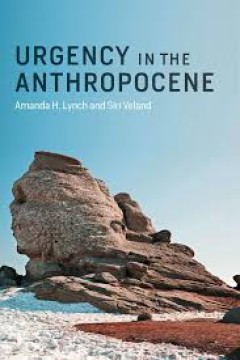
Urgency in the Anthropocene
Is this the Anthropocene? The age in which humans have become a geological force, leaving indelible signs of their activities on the earth. The narrative of the Anthropocene so far is characterized by extremes, emergencies, and exceptions-a tale of apocalypse by our own hands. The sense of ongoing crisis emboldens policy and governance responses that challenge established systems of sovereignty…
- Edition
- -
- ISBN/ISSN
- 9780262348898
- Collation
- 1 online resource (xii, 238 pages)
- Series Title
- -
- Call Number
- -
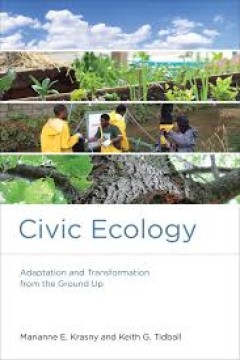
Civic Ecology: Adaptation and Transformation from the Ground Up
Stories of environmental stewardship in communities from New Orleans to Soweto accompany an interdisciplinary framework for understanding civic ecology as a global phenomenon.OCLC-licensed vendor bibliographic record.
- Edition
- -
- ISBN/ISSN
- 9780262327169
- Collation
- 1 online resource :illustrations.
- Series Title
- -
- Call Number
- -

Design for resilience :making the future we leave behind
"Designing for resilience is a critical issue of the 21st century. This is the first book-length work that shows us how to design for a future that lasts, and why we should want to"--OCLC-licensed vendor bibliographic record.
- Edition
- -
- ISBN/ISSN
- 9780262374460
- Collation
- 1 online resource
- Series Title
- -
- Call Number
- -

A Darwinian survival guide :hope for the twenty-first century
"Guided by the Four Laws of Biotics, the book details how technological humanity should interact with the biosphere and each other in accordance with Darwinian principles, which illuminate a middle ground between unacceptable apocalypse or unattainable utopia, with two hopeful options: alter our behavior now at great expense based on Darwinian principles and extend current civilization, or fail…
- Edition
- -
- ISBN/ISSN
- 9780262377478
- Collation
- 1 online resource
- Series Title
- -
- Call Number
- -

GrowthFrom microorganisms to megacities
OCLC-licensed vendor bibliographic record.
- Edition
- -
- ISBN/ISSN
- 9780262354516
- Collation
- 1 online resource (688 pages).
- Series Title
- -
- Call Number
- -

To know the world :a new vision for environmental learning
"A practical and poetic manifesto promoting new concepts of environmental learning: why environment, inequity, democracy, and diversity are connected challenges, how to navigate the rapid pace of change in the Anthropocene, how to better understand social and ecological networks, how to think about migration both ecologically and culturally, and how to bring a cosmopolitan perspective to place-…
- Edition
- -
- ISBN/ISSN
- 0262361043
- Collation
- 1 online resource.
- Series Title
- -
- Call Number
- -
 Computer Science, Information & General Works
Computer Science, Information & General Works  Philosophy & Psychology
Philosophy & Psychology  Religion
Religion  Social Sciences
Social Sciences  Language
Language  Pure Science
Pure Science  Applied Sciences
Applied Sciences  Art & Recreation
Art & Recreation  Literature
Literature  History & Geography
History & Geography